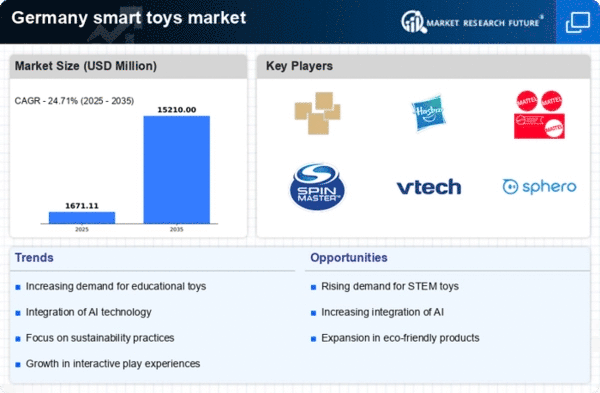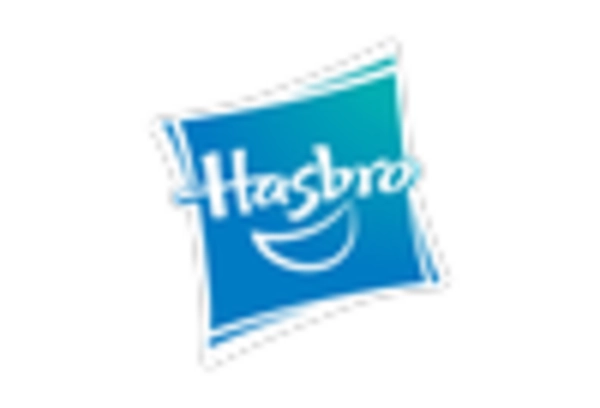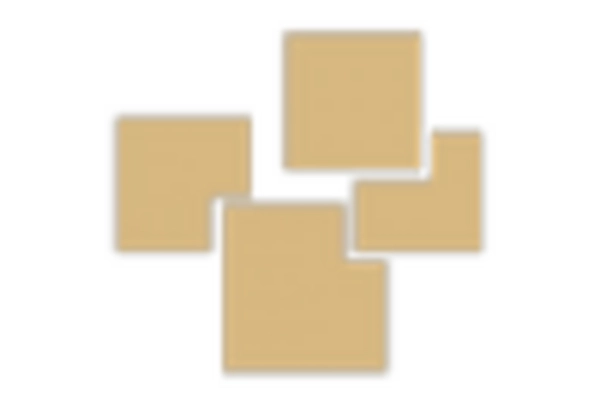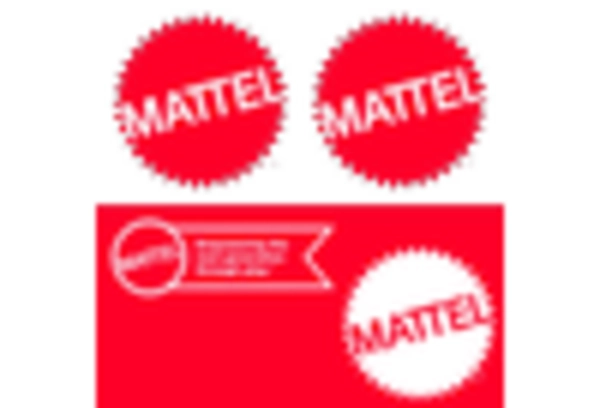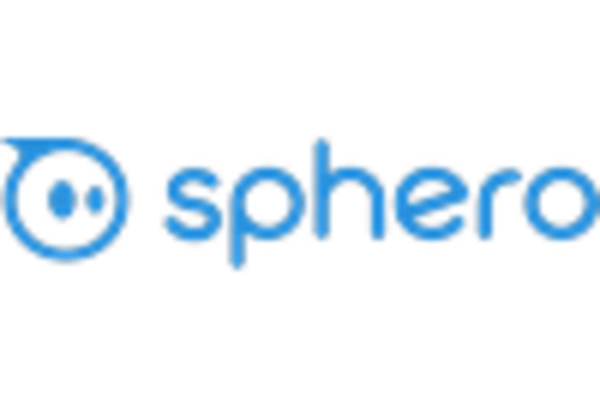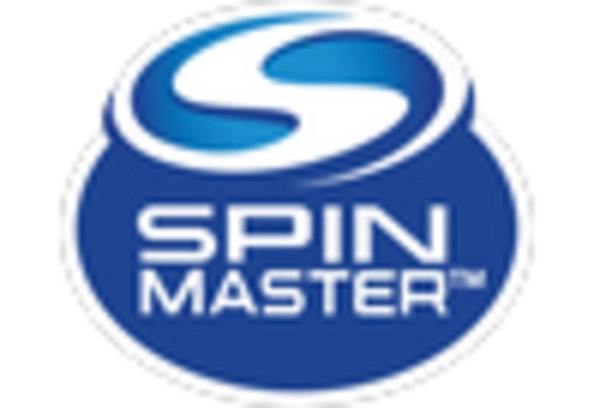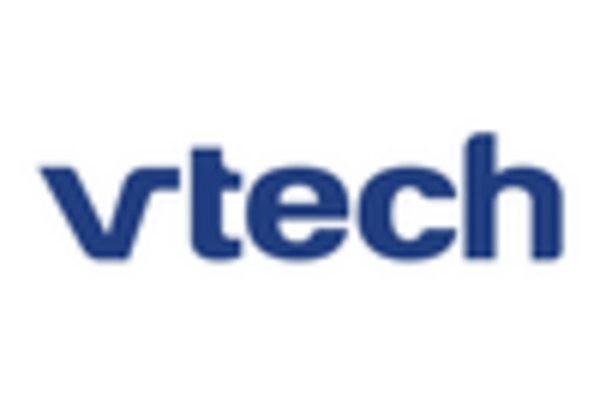Rise of Digital Play Experiences
The smart toys market in Germany is witnessing a rise in digital play experiences. The integration of digital elements into traditional toys is creating a hybrid play environment that captivates young audiences. In 2025, the market for digital play experiences is estimated to account for over 30% of the overall smart toys market. This shift is driven by children's growing familiarity with technology and their desire for interactive play. As a result, manufacturers are focusing on creating toys that blend physical and digital play, thereby enhancing engagement and learning outcomes. This trend indicates a promising future for the smart toys market.
Technological Advancements in Smart Toys
The smart toys market in Germany is surging due to rapid technological advancements. Innovations in artificial intelligence, augmented reality, and Internet of Things (IoT) are enhancing the interactivity and educational value of toys. For instance, toys that adapt to a child's learning pace are becoming increasingly popular. In 2025, the market is projected to grow by approximately 15% due to these technological enhancements. Parents are increasingly seeking toys that not only entertain but also educate, leading to a shift in purchasing behavior. This trend indicates a strong demand for smart toys that incorporate advanced technologies.
Increased Investment in Research and Development
Investment in research and development (R&D) within the smart toys market is on the rise in Germany. Companies are allocating substantial resources to innovate and create new products that meet the evolving demands of consumers. This focus on R&D is crucial, as it allows manufacturers to stay competitive and introduce cutting-edge features that appeal to tech-savvy children and their parents. In 2025, it is projected that R&D expenditures in the smart toys market will increase by 20%, reflecting the industry's commitment to innovation. This trend suggests that continuous investment in R&D will play a pivotal role in shaping the future landscape of the smart toys market.
Growing Parental Awareness of Educational Benefits
In Germany, there is a notable increase in parental awareness regarding the educational benefits of smart toys. Parents are actively seeking toys that promote cognitive development, problem-solving skills, and creativity. This shift in consumer behavior is likely to drive the smart toys market, as parents prioritize educational value over traditional play. Research indicates that 70% of parents are willing to invest more in toys that offer learning opportunities. Consequently, manufacturers are responding by developing products that align with educational standards, further stimulating market growth. This trend suggests that the smart toys market will continue to expand as educational awareness among parents increases.
Expansion of Retail Channels and Distribution Networks
The smart toys market in Germany benefits from expanding retail channels and distribution networks. With the rise of e-commerce and the diversification of retail formats, consumers have greater access to a variety of smart toys. This expansion is likely to enhance market visibility and availability, making it easier for consumers to discover and purchase innovative products. In 2025, it is anticipated that online sales will represent over 40% of total smart toy sales, driven by the convenience and variety offered by digital platforms. This trend indicates that the smart toys market will continue to thrive as retail channels evolve and adapt to consumer preferences.


